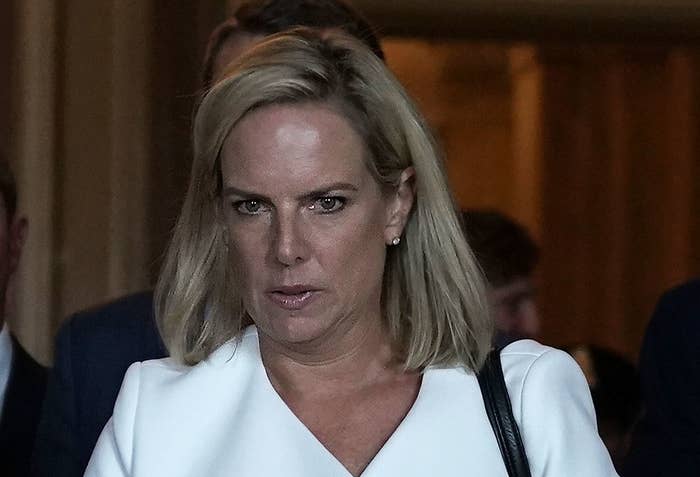
SAN FRANCISCO — Immigrants who use or are likely to use public benefits, such as food stamps and housing vouchers, could be denied green cards or entry into the United States under a new proposal released by the Trump administration late Saturday.
The proposed regulation would affect roughly 382,000 people per year, according to the government’s estimates.
The regulation is the latest attempt by the administration to further restrict immigration and was met with dismay by immigration advocates who believe the new proposal will make families less likely to seek needed government assistance. Supporters of the rule believe it’s necessary to rein in immigrants’ use of government resources.
“This is an inhumane attack on the health and well-being of countless families and communities. It is a new family separation policy, and it will lead to families being torn apart or becoming sick and hungry,” said Jackie Vimo, a policy analyst at the National Immigration Law Center. “Trump's new proposal is an end run around Congress to radically transform our immigration system to one where green cards go to the highest bidder.”
The Immigration and Nationality Act has long allowed the government to reject granting permanent residency to immigrants who were determined to be a financial burden on society or a "public charge.” The new rule would alter how the government decides if someone is a public charge, allowing officials to deny visas or green cards to those who have used or will likely use the Supplemental Nutrition Assistance Program (SNAP food stamps); Section 8 housing vouchers and assistance; public housing; or the low-income subsidy available to help pay prescription drug expenses through Medicare Part D.
The use of or likely use of one or more of those benefits will be seen by officials as a “heavily weighed negative factor” in determining whether a person is eligible for an immigrant visa or a green card. The proposed rule will be published in the Federal Register in the next few weeks and will have a 60-day public comment period, the Department of Homeland Security said in a statement. Refugees and asylum-seekers are not impacted by the proposed changes. (UPDATE: The proposed rule was published Wednesday, Oct. 10, in the Federal Register.)
“Under long-standing federal law, those seeking to immigrate to the United States must show they can support themselves financially,” Homeland Security Secretary Kirstjen Nielsen said in the statement. “The Department takes seriously its responsibility to be transparent in its rulemaking and is welcoming public comment on the proposed rule.”
Nielsen said the proposed rule is “intended to promote immigrant self-sufficiency and protect finite resources by ensuring that they are not likely to become burdens on American taxpayers.”
More than 4 million noncitizens were in families receiving SNAP benefits between 2014 and 2016, according to an analysis done by the Migration Policy Institute. More than 39 million people were enrolled in the program in June 2018, according to the Department of Agriculture’s most recent statistics. It did not break out the numbers by immigration status.
Immigrant advocates said the new rule is unnecessary.
“This is a solution in search of a problem,” said Pratheepan Gulasekaram, a professor at Santa Clara University School of Law. “This is a rule change intended to justify the false narrative the Trump administration has put forth all along, that immigrants are a drain on taxpayer dollars and feeds into the popular stereotype that immigrants are drains on the economy.”
Research done by the Cato Institute, a libertarian think tank based in Washington, DC, found that immigrants were less likely to use welfare benefits and when they did they used a lower dollar value of benefits than those born in the US.
UPDATE
The proposed rule was published Wednesday, Oct. 10, in the Federal Register, starting the 60-day comment period.

